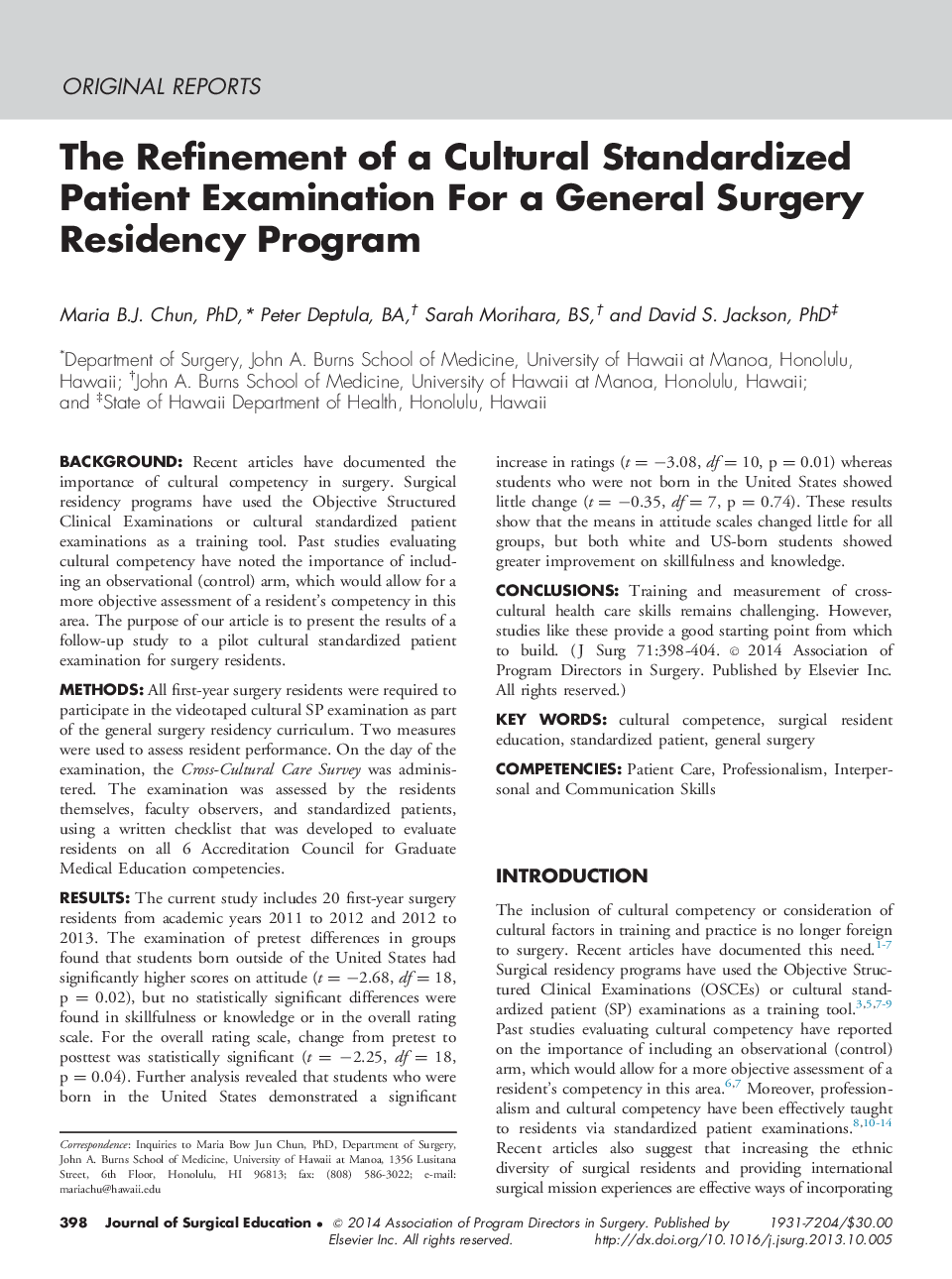| کد مقاله | کد نشریه | سال انتشار | مقاله انگلیسی | نسخه تمام متن |
|---|---|---|---|---|
| 4297876 | 1288334 | 2014 | 7 صفحه PDF | دانلود رایگان |
BackgroundRecent articles have documented the importance of cultural competency in surgery. Surgical residency programs have used the Objective Structured Clinical Examinations or cultural standardized patient examinations as a training tool. Past studies evaluating cultural competency have noted the importance of including an observational (control) arm, which would allow for a more objective assessment of a resident’s competency in this area. The purpose of our article is to present the results of a follow-up study to a pilot cultural standardized patient examination for surgery residents.MethodsAll first-year surgery residents were required to participate in the videotaped cultural SP examination as part of the general surgery residency curriculum. Two measures were used to assess resident performance. On the day of the examination, the Cross-Cultural Care Survey was administered. The examination was assessed by the residents themselves, faculty observers, and standardized patients, using a written checklist that was developed to evaluate residents on all 6 Accreditation Council for Graduate Medical Education competencies.ResultsThe current study includes 20 first-year surgery residents from academic years 2011 to 2012 and 2012 to 2013. The examination of pretest differences in groups found that students born outside of the United States had significantly higher scores on attitude (t = −2.68, df = 18, p = 0.02), but no statistically significant differences were found in skillfulness or knowledge or in the overall rating scale. For the overall rating scale, change from pretest to posttest was statistically significant (t = −2.25, df = 18, p = 0.04). Further analysis revealed that students who were born in the United States demonstrated a significant increase in ratings (t = −3.08, df = 10, p = 0.01) whereas students who were not born in the United States showed little change (t = −0.35, df = 7, p = 0.74). These results show that the means in attitude scales changed little for all groups, but both white and US-born students showed greater improvement on skillfulness and knowledge.ConclusionsTraining and measurement of cross-cultural health care skills remains challenging. However, studies like these provide a good starting point from which to build.
Journal: Journal of Surgical Education - Volume 71, Issue 3, May–June 2014, Pages 398–404
